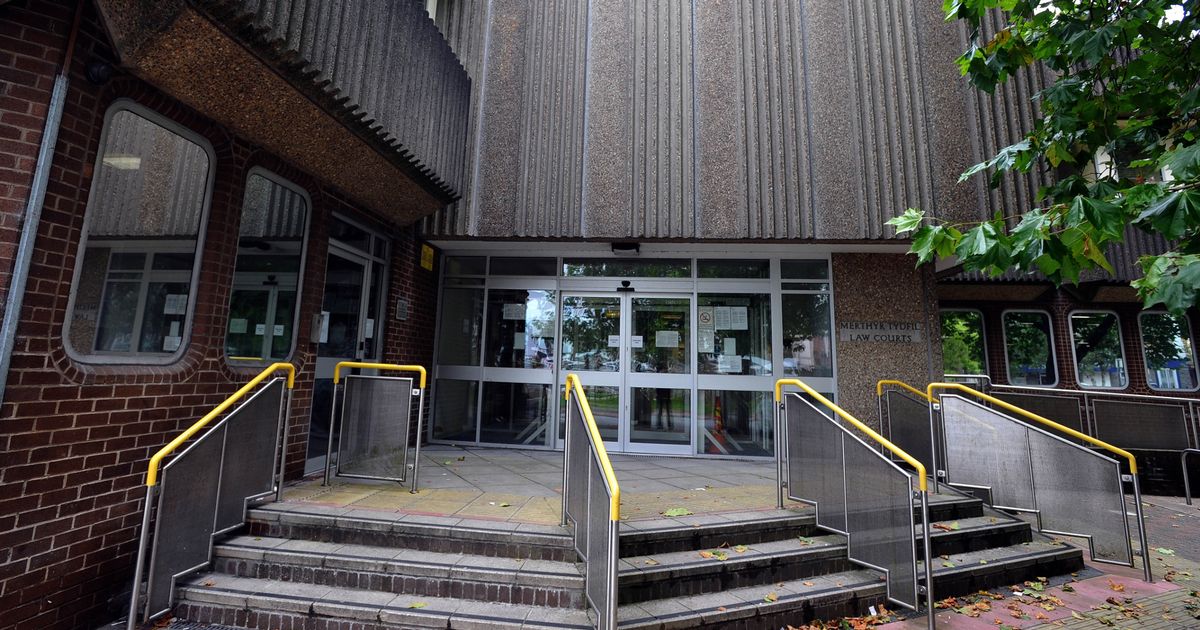Rhys Lloyd, now 21, was told by a judge his actions were ‘utterly reprehensible’ after he engaged in sexual activity with the girl
A 19-year-old man had sex with an underage girl and received indecent images of her which were later found on his phone. A judge told him he had “taken advantage” of his victim in order to meet his own needs.
Rhys Lloyd, now 21, had been speaking with his victim online and arranged to take her out in his car. He took her to a countryside location where he had sex with her, despite the fact she was underage.
A sentencing hearing at Merthyr Tydfil Crown Court on Thursday heard the defendant touched the victim’s breasts and kissed her. Don’t miss a court report by signing up to our crime newsletter here
He instructed her to undress, before engaging in sexual activity with her.
She asked him to stop and they began chatting before he kissed her again.
The defendant then asked her to perform a sex act on him, which she did.
Prosecutor Roger Griffiths said Lloyd and the victim also had sex in the car.
They both got dressed and he dropped her back home in the early hours of the morning.
He told her not to tell anyone about their relationship, and said there was a difference between a “social life and a private life”.
In the days following, communication between them became less and less and the victim described the defendant as “distant” and “nonchalant”.
When asked if he had feelings for her, Lloyd said he did not.
Mr Griffiths said they had previously talked about the victim’s age but the defendant said it was “ok”.
The victim had also sent indecent images of herself to Lloyd at his request, and they were later found on his phone following his arrest.
Lloyd, of Green Meadow, Cefn Cribwr, Bridgend, later pleaded guilty to engaging in sexual penetrative activity with a girl aged 13 to 15 and causing/inciting a girl aged 13 to 15 to engage in sexual activity.
The court heard he was of previous good character.
In a victim personal statement read to the court by Mr Griffiths, the victim said: “Days after we had sex in his car, he became distant and acted nonchalant towards me. It was not something I expected of him, he hardly spoke to me after he dropped me off. I felt used and confused about why he was acting in this way… It’s taken a long time to process what happened to me and I now accept I’m a victim.”
In mitigation, Ieuan Rees said his client had hoped for a career in the Army and had joined the forces but as a result of his conviction he would be discharged.
The barrister said the defendant had a supportive family and described him as a “well qualified and employable young man”.
Sentencing, Judge Vanessa Francis said: “In that interaction you were the adult, you knew she had a crush on you and you knew she wanted to be with you and around you and you took advantage of that in order to meet your own needs. That was an utterly reprehensible thing to do.”
Lloyd was sentenced to 16 months imprisonment, suspended for two years.
He was made subject to a rehabilitation activity requirement for 25 days, unpaid work for 40 hours, a restraining order for 10 years and sex offender notification requirements for 10 years.
Get daily breaking news updates on your phone by joining our WhatsApp community here. We occasionally treat members to special offers, promotions and ads from us and our partners. See our Privacy Notice.











